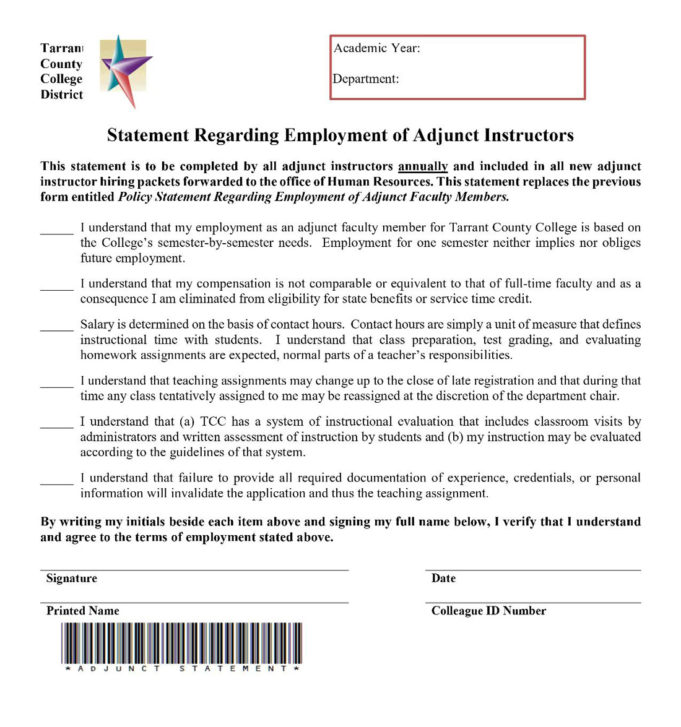In one year, Tarrant County College’s recently terminated chancellor — the alleged philandering administrator who, based on court documents, doesn’t know what tenure is — earned the equivalent of 20-plus TCC adjunct professor salaries. The disparity is a stark reminder of how those at the top of higher education frequently take advantage of lower-level instructors who teach the bulk of community college courses.
Eugene Giovannini’s tenure was marked by two possibly retaliatory terminations within the past two years, and those are only the cases we know about so far. Several former TCC employees told us that, under Giovannini’s leadership, campus culture allegedly left no room for dissent (“A Pattern of Poor Leadership?” Mar 18). The college’s board of trustees recently voted to remove him after an independent investigation found that he retaliated against a former employee. Kristen Bennett told one TCC attorney about an alleged intimate and wholly inappropriate relationship between Giovannini and a female subordinate. Even with the ouster, life must have been good for the 11 years that the college’s top administrator raked in $432,836 a year.
“The adjuncts have been known to eat out of the food pantry on campus, which is why the chancellor’s salary is so appalling,” said Sam, a TCC adjunct who asked that we hide their identity.
According to TCC’s website, adjunct professors earn around $500 per month per class. With an average load of three courses per semester, adjuncts earn between $18,000 to $25,000 annually for the contract position that frequently requires a master’s degree. Full-time faculty earn easily three times that amount. TCC maintains 750 full-time professors and 2,222 adjunct instructors. Tarrant’s community college is far from alone when it comes to pay disparity in higher ed.
A recent report by the American Federation of Teachers found that one-quarter of adjunct instructors across the country rely on some form of public assistance. TCC’s current contract for adjuncts appears to ban the contract employees from unemployment and other state benefits.
The contract reads, “I understand that my compensation is not comparable or equivalent to that of full-time faculty, and, as a consequence, I am eliminated from eligibility for state benefits or service time credit,” TCC’s adjunct contract reads.
TCC’s communications liaison said his office does not comment on personnel-related issues.
Sam told us that adjuncts frequently lose classes to full-time faculty — sometimes with little to no notice. That can leave the instructors who planned on a full semester of work with no income. During the worst of the pandemic under TCC’s old contract, Sam continued, several of their colleagues received unemployment. The new contract, Sam alleges, allows the college to forgo paying into the state’s unemployment system.
Based on the website of the Texas Workforce Commission, the governmental group tasked with providing unemployment benefits, “Employers pay unemployment insurance taxes and reimbursements that support unemployment benefit payments.”
A spokesperson for the state workforce commission declined to comment on this story, but Texas’ labor code is clear on the matter.
“An employer may not require or accept a waiver of a right of an individual employed by the employer,” the code reads.
Any employer who violates Texas’ labor code can be fined no more than $1,000 and face imprisonment of up to six months in jail, the code reads. TCC’s human resources department appears to be violating their employees’ rights, and, even if there is legal wiggle room to do so, it’s an incredibly shitty way to treat the instructors who are the backbone of our county’s college. TCC’s leaders know full well their adjuncts are underpaid and overworked. The instructors likely enjoy the work and probably don’t want to risk losing their job by filing complaints or contacting the Texas Workforce Commission directly. It’s a modern-day form of indentured servitude that allows for high salaries for administrators who earn several times the earnings of the men and women who do the difficult and important work of teaching tens of thousands of Tarrant County residents each year.
Sam said TCC leadership should take steps to convert more adjuncts to full-time faculty. Given Giovannini’s exorbitant salary, administrators can’t argue that there isn’t enough money. Students often opt for classes with their favorite adjunct instructors, often to the detriment of enrollment in courses led by faculty. When faculty-led classes don’t fill, Sam said, adjuncts shouldn’t pay the price by losing enrollment.
In recent months, several former TCC employees have reached out to our news magazine with horror stories that aren’t tied to Giovannini’s recent ousting. The college’s attorneys have gone to great lengths to block our open records requests for basic information about the college, and, to this day, all of our media inquiries have been ignored. Based on our first-hand conversations with current and former TCC employees, Giovannini’s termination may be just the beginning of a cascade of scandals and lawsuits that will hit the college in the coming weeks and months.
This column reflects the opinions of the editorial board and not the Fort Worth Weekly. To submit a column, please email Editor Anthony Mariani at Anthony@FWWeekly.com. Submissions will be edited for factuality and clarity.













This is not surprising given the amount of croneyism and conspiracy that Tarrant County is known for… TCC needs to have its accreditation revoked and all administrators investigated for any number of crimes. It’s time to bring back TCJC and shitcan all the insanity that makes the TCWD look like a well run operation…